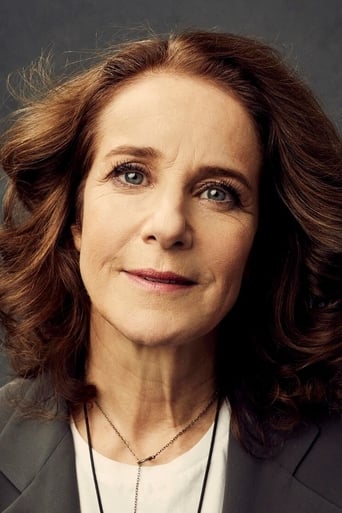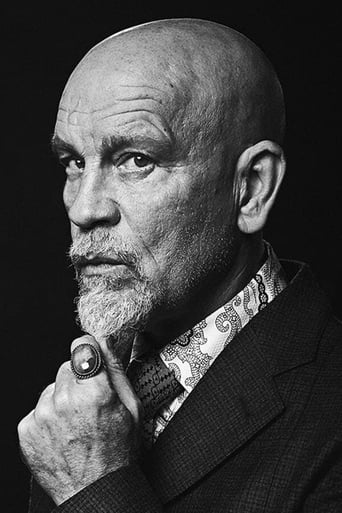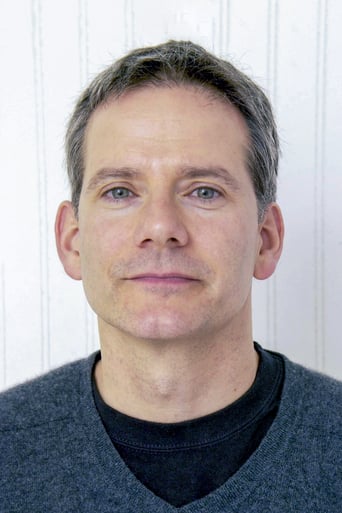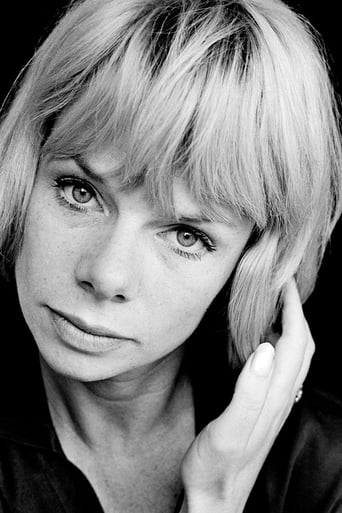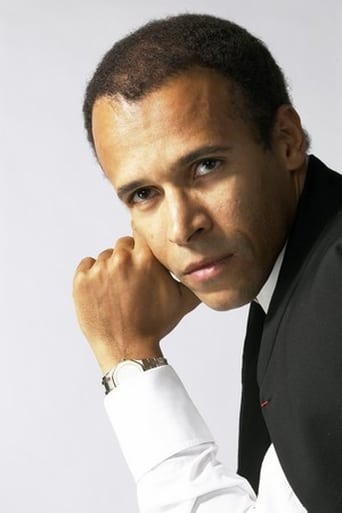Moustroll
Good movie but grossly overrated
ThedevilChoose
When a movie has you begging for it to end not even half way through it's pure crap. We've all seen this movie and this characters millions of times, nothing new in it. Don't waste your time.
Juana
what a terribly boring film. I'm sorry but this is absolutely not deserving of best picture and will be forgotten quickly. Entertaining and engaging cinema? No. Nothing performances with flat faces and mistaking silence for subtlety.
Logan
By the time the dramatic fireworks start popping off, each one feels earned.
eric262003
Based on the novel by Paul Bowles, "The Sheltering Sky" is the story of rekindling one's marriage is one of the greatest pieces of 20th century literature. When I rented the movie, I was even more flabbergasted when I saw the DVD cover sleeve and discovered that well-known Italian director Bernardo Bertolucci was behind the lenses. The desert settings were the perfect locality for a film of this calibre which resembles that of "Lawrence of Arabia" or cinematic classics like "The English Patient". Even though Bertolucci and his cinematographer Vittorio Storaro have physically made this film visual eye-candy, there are other traits that have an equally proportionate share of hits and misses.As it hurts me to say this, the biggest flaws lie in the balance of the two leads (John Malkovich and Debra Winger) who play the roles of Port and Kit Moresby, a duo of self-absorbed wealthy New Yorkers who travel to Tangiers, Morocco to spruce up some adventure to fix up their progressively crumbling marriage. Port and Kit pompously refer to themselves as "travelers" over tourists towards their somewhat mutual friend George Tunner (Campbell Scott), who has a subtle attraction to Kit. The triad bring an unnecessary amount of luggage and that it becomes clear that style outweighs substance as the trifecta just wander about without any kind of purpose other than the fact that they're just reeking in their wealth.The Moresby's are caricatures that spell out F. Scott Fitzgerald, they're in their 30's, flamboyant, condescending and have no cares for any kind of moral decency. Poor casting choice for Malkovich as the cultivated intelligent trying to gather his ideas in a setting that doesn't quite comprehend to an atmosphere where every foundation of him is quickly crumbling before his very eyes. Malkovich has none of the physical characteristics described in Bowles' novel let alone the immaculate mannerisms portrayed there either. His light monotone voice and his use of throwaways are opposed to the well polished dialogue from Bowles' novel. Malkovich is great at portraying macabre characters and brings that level with him in a lot of his performances, but Port is not at all like that. Sure he's self-righteous and unsympathetic, but he's not in any way shape or form diabolical.Debra Winger as Kit is a tad bit better though as her narrative is the focal point of the story. But she also seems physically wrong for the part. Where was Meryl Streep at the time? Bowles' novel called for a fair, vulnerable, fragile woman in the opening scenes of the book. Winger seems too play off Kit as a bold, strong-willed character. Her efforts to play it calculating seems at times quite contrived and very ridiculous complete with her raspy laugh and her ample limbs. She seems too independent-minded that's contrary to the character of Kit from the novel. Her Midwestern ways are opposite and seems out of place to the upper-class traits Kit portrays in the book. Sure at first she looks authentic to the characters in the book, but once she and Port wander aimlessly in the desert, her physical and mental demeanor are more Winger than Kit as opposed to the other way around.The supporting characters like Campbell Scott, Timothy Spall and Jill Bennett are quite convincing in their respected roles and seems to upstage the leads at times. The score by Ryuichi Sakamoto is quite thrilling, but at the same time very jarring. The dialogue can be very overwhelming and their motives are blank. The author(who plays a blind man at a bar) provides the narration. But the story of his journey feels more inferior than exterior and the translation of what he's talking about is quite complex. To put in a nutshell, it's better to read the novel first before getting into the book so you'll get a better comparison of the differences between the novel and the visually satisfying, but poorly executed adaptation.
johnnyboyz
Ultimately, The Sheltering Sky is too long; a film that wears out its welcome when it removes, for its third act, what made it so interesting for its first two. This is before stripping its resources bearer still for the very final few dozen minutes when further dynamics and characters are removed thus killing it off even more. One senses Bertolucci should have pulled the plug earlier than he did, some time before we're left with hanging shots of the intense African desert and those that inhabit it; the likes of whom the lone central character still left in the film falls in with, someone who then somewhat oddly comes to find a degree of liberation once this has happened. It isn't a bad film by any means, quite the opposite. For the most time, it's engrossing; a film about a relationship being strained and tested in an equally testing climate and locale, but when it decides to remove its love rival to this central tryst, the thematic flags; when the comic relief is removed in equal turn, Bertolucci is no longer able to demonstrate his acute ability to switch from tone to tone. The film falls as a result; the performances take over, the thing becomes an acting piece more-so a directorial piece: the marriage has been studied, played out and depicted - what we're left with is not as interesting.The scenario of matrimony in question is shared between Americans Port and Kit Moresby, played respectively by John Malkovich and Debra Winger. They are two people who arrive in a dusty, French speaking North African nation by boat from, what we assume from the use of found footage during the immediate opening, the city of New York. They do not see themselves as "tourists" in as much they see themselves "travellers", but such a challenging of a specific definition between two things, of which may as well mean the same thing anyway, essentially sets up the gradual unravelling of the marriage via the same intrinsic thing: the ambiguity over the definitions of whether Port and Kit any longer enjoy one another's presence. They are visiting this place with a friend called George Turner (Scott), a man whose presence threatens to wreck the Moresby's time here in so much Kit appears to take to him and Port is mostly suspicious of them as a pair.Propping up proceedings is a middle-aged Englishman named Eric (Spall), who's in and around our centred triangle with his mother, played by Jill Bennett: a professional travels guide writer and comic relief: "Spain!" she bellows. "Nothing but soldiers, priests and Jews!" Upon arrival, the Moresby's attempt to create share sort of intimacy is ruined when Kit brings up Turner and speaks well of his features. Things are not aided during this early awkward time when the general intimacy of the hotel is as prominent as it is, and Port feels the need to frequent a sex worker out of his frustrations born out of Kit's actions. Further distrust appears when both individuals take differing routes to a new hotel, a place to stay deeper still into this territory which gradually becomes more and more barren and away from any sort of urban congregation. Their scenes of philosophising and love making play out to a musical score consisting of a drum more broadly resembling a funeral death march, reiterating the potential their bond has to wreck itself.There is genuine room to enjoy the film as this piece of cinema depicting a love triangle as those involved trek across the unforgiving Saharan desert, and Bertolucci does well to correlate the people doing the mileage as the marriage itself struggles with the burden. There isn't much behind revealing that Turner and Kit do indeed connect with one another to an extent that would be thoroughly detrimental to any marriage should what transpire transpires here. The suspicions and such Port has for these two never explodes into anything overtly melodramatic, in fact we enjoy the film's maintain of it as this simmering object: never allowing for immediate, obligatory dramatic resolution as one party goes mad at another over things we're already aware of for meek domestic, dramatic kicks; something that would render it more reminiscent of a soap opera than this sweeping, period set, a million-miles-from-home desert-based piece.Later on, when Turner is removed from the film, the weight of this distrust and anxiety can only carry the film for so long. As mentioned, one senses the film wearing out its welcome as thematic and dramatic concentration are substituted for a more wandering; less congealed procession of sweeping Saharan compositions and the strength of the performances. Bertolucci's direction is assured; someone who really grounds out this atmosphere wherein events are moving slowly and we trudge through this hot, lazy place with this marriage additionally appearing to do likewise; this is without the film ever really feeling as if it too is doing the same. No doubt the film will displease some, but this is worth sticking out in the long run – it's just a shame one has to use a term along the lines of "long run" in the first place.
ursulahemard
Not exactly a Biopic in the proper sense of the word, but an adaption of the autobiographical and massively dramatised novel by the American author, composer and translator Paul Frederic Bowles (December 30, 1910 – November 18, 1999). In 1947 Bowles settled in Morocco, with his wife, Jane Bowles (February 22, 1917 – May 4, 1973) who was an American writer and playwright in her own right. Not having read the book, it's too difficult to me to comment on its truthfulness, however we know that Paul Bowles was cooperating with the screenwriters, it is he who is narrating the film and even appears in a cameo role. It's the story about a couple's search for stimulation not only within their fading passion and closeness but also for their creativity and productivity. Ultimately, from the personal point of view, this turns out to be a sad enterprise, thinking that the constant traveling and external visual changes would rekindle their evaporated love and disconnection; it's a shortsighted forced-upon chase after illusions. John Malkovich and Debra Winger are not the usual Hollywood-like physically attractive love couple 'a la Barbie and Ken' nevertheless it was beautifully exciting to watch them perpetually connect and disconnect mentally and physically. As soon as the protagonist dies, that's when the biopic turns into fiction, as Bowles kept on living till 1999. I was wondering if he wrote this scenario as a sort of a metaphor reflecting on his own life and dismantling relationship.From the famous and truly extraordinary Italian cinematographer, Vittorio Storaro's view, this is a declaration of love to Morocco and its impressive and breathtaking landscapes, culture and nomadic life; a magnificent visual feast and one may even smell all the spices, swatting flies, feel the grit of sand between the teeth, start sweating and get one's blood boiling, not only due to the local heat but also to the carnal sultriness, whilst watching the screen! Full frontal nudity and a few sensual yet tasteful very erotic scenes and therefore I rate it 16+.The gorgeous main-theme of the soundtrack is a total tearjerker to me...for sentimentalists only!Noticed that they drink a lot of MUMM Champagne, oh! how French, and that Eric Vu-An, famous Ballet dancer and ex Etoile de L'Opera de Paris had a secondary very seductive role in this typical Bertolucci epic.
Hitchcoc
Have you ever had one of those nights where you couldn't sleep? You wake up tired, but you know you have to go to work the next day. Everything you do makes you tired, but you must press on. That's the feeling I got from this film. Fatigue. As Winger and Malkovich make their respective ways through the Saharan obstacle course, I wonder what horror is around the next corner. Ultimately, we need to ask the question, "Why are they there." The ennui they represent is hard to fathom. They have bought into this mess and have no intention of leaving it. The characters are exhausting in that they are reckless. They put themselves in constant danger. I guess it's to experience something that will bring them out of their self imposed comas. The acting is excellent; the scenery phenomenal. I felt like I was riding along with them on those awful buses. At some point, I guess, Debra Winger's character has some sort of epiphany and sexual fulfillment, but what lies ahead. Exhausting!


